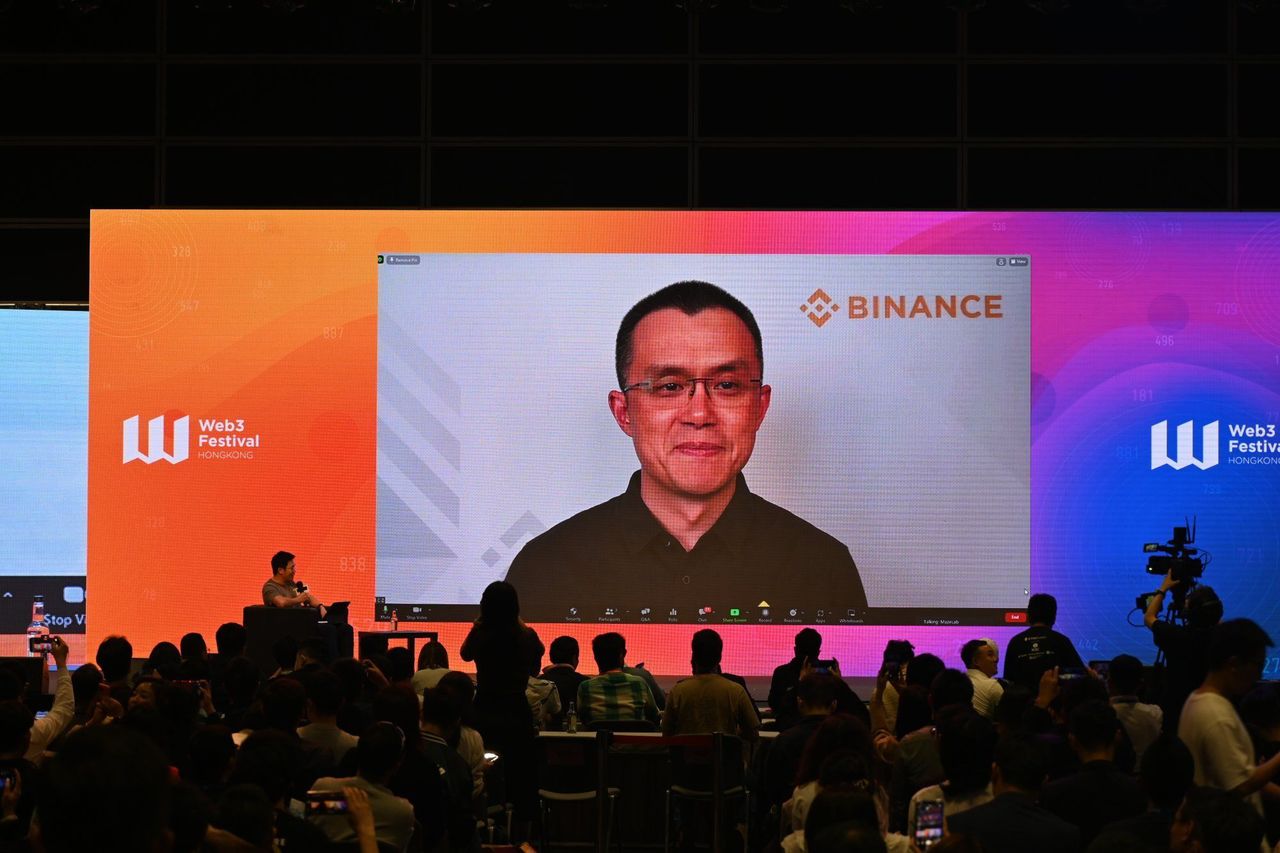Hong Kong News

Hong Kong reiterates cryptocurrency regulation commitment at city’s largest Web3 show
Hong Kong government officials have reiterated the city’s commitment to growing the Web3 industry under “appropriate” regulations, hinting at more oversight of decentralised finance (DeFi) apps at the four-day Web3 Festival, which kicked off on Wednesday with opening remarks from Financial Secretary Paul Chan Mo-po.
“The premise of Web3 development is that the stability of the financial system and investor protection should not be damaged,” Chan said in his speech. “I believe that everybody has learned from recent events that appropriate regulations are a must to create a sustainable development environment and a more ideal space for development.”
 Binance co-founder and CEO Zhao Changpeng speaks during a fireside chat
with HashKey Capital CEO Deng Chao during the Hong Kong Web3 Festival on
Wednesday.
Binance co-founder and CEO Zhao Changpeng speaks during a fireside chat
with HashKey Capital CEO Deng Chao during the Hong Kong Web3 Festival on
Wednesday.
Some attendees of the conference – the largest Web3 event the city has hosted since declaring its intention last year to become a digital asset hub – were surprised to learn that the Securities and Futures Commission (SFC) believes DeFi platforms for virtual assets need a licence under existing rules. Without any central authority, decentralised services have typically been seen as less susceptible to government oversight.
“The SFC views DeFi activity through the same regulatory framework that applies to financial activities regulated by the SFC,” said Keith Choy, interim head of the intermediaries division at the SFC. “As such, as long as DeFi activity holds within the scope of securities and futures, it would be subject to the same regulatory requirements applicable to traditional financial activity.”
People “operating or performing” DeFi activities should be subject to Hong Kong’s licensing requirements, added Choy, noting that “providing automated trading services” is a regulated activity whether decentralised or not.
“If Hong Kong really intends to regulate DeFi, this will mean it has a stricter [environment] than Singapore,” said Lily King, chief operating officer of digital asset custodian Cobo.
The Web3 industry has been closely watching the development of a new regulatory framework for virtual assets in Hong Kong since the city revealed at the end of October its intention to become cryptocurrency hub. The city has frequently been compared with Singapore, which had been considered a friendlier market for related activity until Hong Kong’s policy shift.
Some attendees had hoped that Hong Kong’s shift would provide some competition for Singapore in the region.
“We did see a very obvious trend of people flying to Singapore to make sure their business was part of this space,” Luke Liu, chief core ecosystem contributor at cross-chain protocol developer Poly Network, told the Post on April 4. “Hong Kong and Singapore can coexist in some sense, but there is definitely a very positive change going on recently because of the Hong Kong policy announcement.”
Under new regulations that go into effect in June, cryptocurrency exchanges serving customers in Hong Kong must be licensed by the SFC. Only two exchanges opted to be licensed under the existing voluntary scheme.
At least two exchanges founded in China have announced their intention to get new licences. OKX said it will set up two local entities, and Huobi adviser Justin Sun said that platform is also filing an application.
The Web3 Festival, which is organised by Hong Kong-based digital asset management firm HashKey Group, had more than 10,000 people sign up to attend ahead of the event, Financial Secretary Chan said in his opening remarks. It has also attracted several big-name speakers and exhibitors looking for new opportunities in the city.
Zhao Changpeng, co-founder and CEO of Binance, even dialled in via video for a fireside chat. Last month, the US Commodity Futures and Trading Commission sued Zhao and Binance over what it alleged was “sham” compliance with domestic regulations. The company has been scrutinised over connections to its local firm Binance.US, which legally is meant to operate as a separate entity.
Zhao was not asked and did not address his legal troubles at the conference, instead focusing on the topic of the chat: centralised finance, or CeFi, referring to platforms like Binance that hold assets for its customers as an intermediary. However, he did note that Binance is in talks with regulators in many markets.
“We are actively engaged with regulators all around the world,” Zhao said. “Many of them are very receptive, some of them are still sceptical, and that’s fine, but we need to engage. We need to have dialogue, we need conversations, and we also need patience.”
Many large cryptocurrency firms were in attendance, including OKX and Filecoin, as were traditional tech firms. Tencent Cloud had a booth touting their blockchain-related services for corporate clients. Alibaba Cloud was also a co-organiser, along with Amazon Web Services and Hong Kong’s Cyberport. Alibaba Group Holding owns the Post.
The event came hot on the heels of the WOW Summit, another Web3 event, held in the city last month. Attendees of the latest Web3 conference appeared quietly optimistic about the potential of Hong Kong’s Web3 development despite the possibility of more regulation.
“I am very encouraged by what I’m seeing and hearing in Hong Kong and hearing directly from officials. I think there is a sense of inclusion, there’s a sense of forward-lookingness, and I think that’s a good thing,” said Hong Fang, president of cryptocurrency exchange OKX. “It’s a very fluid situation, but I can see Hong Kong being a very important hub for our team, together with the US and some other offices.”











